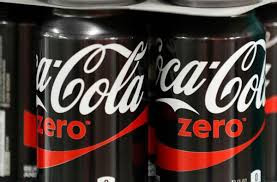Coke Zero, now rebranded as Coca-Cola Zero Sugar, is often marketed as a healthier alternative to the traditional sugary Coca-Cola Classic. It promises zero calories and sugar while delivering the signature Coca-Cola taste. But is it genuinely a healthy choice? Let’s dive into the facts.
Is Coke Zero Healthy?
On the bright side, Coke Zero is sugar-free. Yet, its sugar substitutes might not be the healthier choice for those aiming to curb diabetes risk. Some research links artificially sweetened beverages to an increased diabetes risk, while others find no significant connection.
Moreover, a significant ingredient in Coke Zero is phosphoric acid, known for causing mild enamel and tooth erosion. Interestingly, while citric acid erodes teeth more than phosphoric acid, Diet Coke has shown to have less erosive effects than some other beverages, such as fruit juices.
List Of Ingredients
- Carbonated Water
- Colour (Caramel E150d)
- Acid (Phosphoric Acid)
- Sweeteners (Aspartame, Acesulfame-K)
- Natural Flavourings
- Acidity Regulator (Sodium Citrates)
Coke Zero Nutritional Value
Coke Zero stands out for having no calories, but it’s equally notable for its lack of nutritional value:
| Component | Value |
| Calories | 0 |
| Fat | 0 grams |
| Protein | 0 grams |
| Sugar | 0 grams |
| Sodium | 2% of the DV |
| Potassium | 2% of the DV |
To achieve this calorie-free sweet taste, artificial sweeteners are incorporated. However, the health implications of these sweeteners remain debated and controversial.
Other Potential Downsides Of Coke Zero

- Heart Disease Risk: Some studies indicate a possible link between artificially sweetened beverages and heart disease, especially among women without prior heart disease history.
- Kidney Damage: The high phosphorus content in sodas might harm kidneys. High consumption of diet sodas is associated with doubled kidney disease risk.
- Gut Health: Artificially sweetened drinks might alter your gut microbiome, potentially impacting blood sugar control.
- Osteoporosis: Daily cola intake is correlated with a 3.7-5.4% reduction in bone mineral density.
However, it’s crucial to remember that further research is necessary to understand the exact impacts of Coke Zero on health.
Conclusion
While Coke Zero offers a sugar-free and calorie-free alternative to traditional sodas, it’s essential to approach it with an informed mindset. The lack of nutritional value, combined with potential health risks, suggests that moderation is key.
FAQs
1. What is the difference between Diet Coke and Coke Zero?
While both Coca-Cola Zero and Diet Coke have the same sweeteners and zero calories, Coca-Cola Zero boasts a different flavor base, resembling Coca-Cola with zero sugar more closely.
2. Why is Coke Zero so addicting?
Artificial sweeteners, found in products like Coke Zero, have a more intense flavor than real sugar. Over time, they can dull our senses to natural sweetness from fruits. Furthermore, these sweeteners might impact the body similarly to sugar.Is there caffeine in Coke Zero?
Yes, Coke Zero does contain caffeine. A 12-ounce (355ml) can has approximately 34 milligrams of caffeine, offering a moderate stimulant boost.
3. Is there caffeine in Coke Zero?
Yes, Coke Zero does contain caffeine. A 12-ounce (355ml) can has approximately 34 milligrams of caffeine, offering a moderate stimulant boost.
After diving into the health profile of Zero Coke, it’s worth noting the characteristics of Sprite Zero, another zero-calorie beverage.

